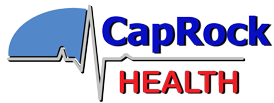High blood pressure (hypertension) affects nearly half of all Americans and is a major contributor to heart attack and stroke, the leading killers of Americans. While more common in older adults due to aging arteries, high blood pressure can affect anyone, even those who practice healthy habits. Getting regular check-ups with your doctor is important to monitor your blood pressure since hypertension usually has no symptoms.
What is high blood pressure (hypertension)?
In order to move blood through our arteries and veins, our heart muscle contracts and produces pressure, known as blood pressure. Blood pressures that are too high cause damage to the delicate blood vessels throughout our bodies, eventually causing blockages or rupturing of important arteries. Blocked arteries to the heart and brain are the cause of heart attacks and strokes (also known as brain attacks). Extremely elevated blood pressures can cause arteries to suddenly rupture and bleed or cause organ damage.
During a routine visit to the doctor, they will check your blood pressure and determine if you have hypertension depending on the systolic and diastolic pressure readings.
- Normal blood pressure falls under 120 for systolic pressure and 80 for diastolic pressure (120/80).
- Elevated blood pressure is defined as between 120 and 129 systolic pressure and diastolic pressure below 80.
- High blood pressure readings will exceed a systolic pressure of 130 and a diastolic pressure of 80 (130/80).
What causes high blood pressure?
Hypertension is the product of our genetics and our lifestyles. Fortunately, the genetic predisposition to high blood pressure doesn’t have negative consequences if we control our blood pressure with lifestyle modifications and medication when needed. These are some of the lifestyle-related factors that contribute to elevated blood pressure:
- Excess salt (sodium) intake
- Excess alcohol or caffeine intake
- Emotional stress
- Lack of exercise
- Poor sleep quality
- Diabetes
- Obesity
- Tobacco use
- Older age
How does high blood pressure affect the body?
High blood pressure usually has no warning signs, so you may feel unaffected. However, hypertension may lead to:
- Stroke
- Heart attack
- Aneurysms (bulging blood vessels)
- Heart failure
- Kidney failure
- Arrhythmias (irregular heartbeat)
- Blood clots
- Chest pain
- Poor memory
- Headaches
How do I prevent high blood pressure?
Eat healthy foods
Although foods high in salt (sodium) and fat generally taste better, they can lead to high blood pressure. Avoid foods high in sodium and saturated fat and choose foods that are rich in potassium and fiber. Fruits and vegetables are great options for lowering high blood pressure as well as fish, nuts, and poultry.
Stay active
An inactive lifestyle is a contributor to high blood pressure. The general guideline is getting 2.5 hours of moderate exercise every week. This exercise can include a brisk walk or hike, riding a bike, lifting weights, or anything that gets your heart rate up for a sustained period.
Limit alcohol intake and smoking
Alcohol and smoking can cause a number of conditions and can contribute to hypertension. The early suggestion that small amounts of alcohol intake protect against heart attack has not borne out over time. Men should limit drinking to no more than 2 drinks per day while women should drink no more than 1 drink per day. But avoiding alcohol altogether is best. Smoking is extremely harmful to our vascular systems, hearts, and brains. Only part of this damage is related to increased blood pressure. No question, quitting smoking can be difficult, but is one of the best things we can do for our health. There are a number of resources online to help. You can also work with your doctors, which doubles the likelihood of successfully quitting.
What if I believe I have high blood pressure?
Scheduling a visit with your primary care provider is the best way to determine if you have high blood pressure. While home BP monitors are usually reliable, it’s best to have your BP documented by a healthcare professional at least occasionally. And if you can remember to take your home BP cuff with you to your doctor’s appointment, you can compare the reading to determine its accuracy.
If you would like to know your blood pressure sooner than you can obtain an appointment, you can see if your local pharmacy offers free blood pressure checks. If you receive a blood pressure reading at home or the pharmacy, and your pressure is above 175/100, you should be seen by a doctor or emergency room right away.
While mildly elevated blood pressures are often managed with only lifestyle changes, many cases will require medications. Fortunately, there are many medications available, most of which control blood pressure with almost no side effects.
If you are worried about your blood pressure, or any other symptoms or conditions that need immediate attention, or you can call CapRock Health anytime 24/7, or just stop in to get examined by our medical professionals.

